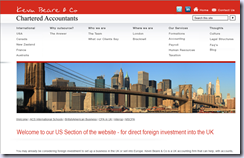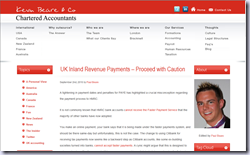Having followed the tweets on #bduk and the Broadband Industry Event it all felt like déjà-vu and the same debate held in 2002 when BT would not provide broadband to rural communities because they were having difficulty convincing the 70% of the country that had broadband available for a couple of years but were not buying into the high speed access. It was the community evangelists of the 30% who provided BT with the information and more importantly the viral advertising network as to what was available once you had 512k always on broadband. This advertising meant that BT could actually sell their moribund product to the urban communities and make even more shareholder return on their inherited infrastructure rather than using the fibre they had planned to install before privatisation.
BT then also delivered 512k to the majority of the rural communities giving those evangelists the same tools as the rest of country. The advertising continued and Government invested to reduce future costs by creating online services on the premise that the bulk of the country had access. But we still have all the not-spots and not all of them are rural.
see this Telegraph article for some numbers "Delay to rural broadband roll out ‘a backward step’"
So now in 2010 where are we, lots of ideas on usage, lots of plans for the urban conurbations to have super fast broadband while no one yet has the killer application.
there were no killer application in 2002, though peer to peer could be one – not a good one for an asymmetrical like ADSL.
But the poor not-spots and the rural communities are in a similar position to that of 2002, a perception from the incumbent suppliers (BT, Virgin and the LLU companies) that the lines will not be profitable. Yet perhaps we should ask BT how much public money they paid back after RDA’s funded investment in rural exchanges that became profitable as soon as they provided ADSL?
The Universal Service Commitment was being asked for in 2002 it has taken seven years for the powers that be to accept that always on high speed access is the same as water and electricity. We learnt today that it will be another five years before we will have a guaranteed 2mb to every household and business. By then the urban community will have super fast broadband as noted in Jeremy Hunt’s speech today with BT’s investment.
If everyone has a right now to 2mb surely that right will increase by 2015 for the same reasons the powers that be took so long to accept between 2000 and 2010?
Wonder where we would be if Mrs Thatcher had allowed both BT to put in their fibre in 1979 and Murdoch to have his satellite licences rather than allow one monopoly to grow at the expense of the other?
At #BDUK the not spot information was to be made available if you signed an NDA (is it really competitive information, or market failure data?), in the past the Regional Development Agencies would be able to sign those NDA’s and plan their access campaign’s accordingly, now we have to rely on the non existent LEP’s ……



